How to choose loft-style panels?
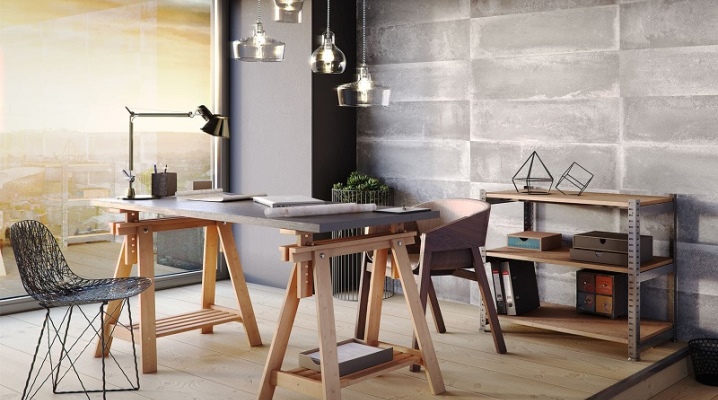
Brutal and charismatic loft style requires the use of special finishing materials. Wall panels will help to realize the dream of a space with a touch of industrialism. How to choose a finish so that it does not get out of style, but, on the contrary, sets the tone for the design decision - let's figure it out in this article.
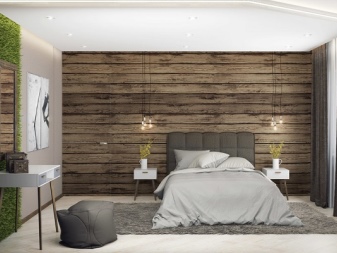
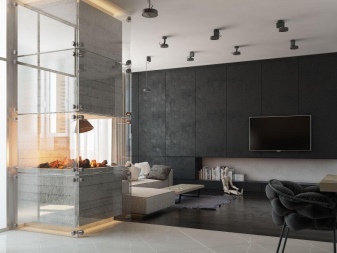
Peculiarities
The idea of using abandoned attics and premises of closed factories and warehouses has been actively used in Paris, London, New York since the beginning of the 20th century. Excessive decoration, active use of textiles, stucco molding, and elegant decor are alien to the loft. Modern residential loft does not abandon comfortable furniture, well-thought-out ergonomics of storage areas, functional lighting and eye-catching details, but the powerful sound of textured wall coverings plays the main role.
Even a non-professional can recreate the industrial spirit with the help of decorative panels. The panels are mounted on a wooden lathing, metal profile or directly on the wall. Features of loft-style wall products:
- panels repeat the design of industrial workshops, galleries, attics;
- the color scheme is calm, often cold, built on the play of shades within the texture itself, without the use of bright prints.
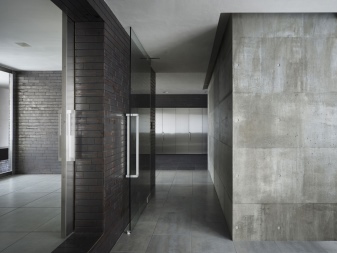
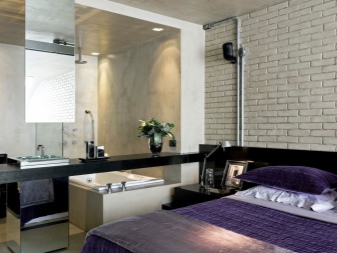
Materials and design
Imitation of factory brick walls Is one of the traditional design techniques. But a loft is not only a rough masonry, other textures can also be harmoniously entered into it. For such a space, materials such as are ideal:
- concrete;
- brick - raw or painted (white, black, shades of gray);
- stone;
- plaster;
- metal - steel, copper, brass;
- textured tree - most often pine;
- leather.
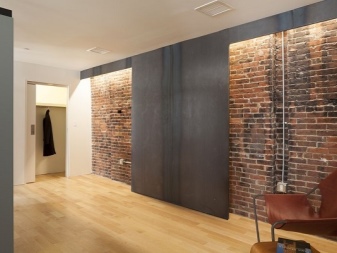
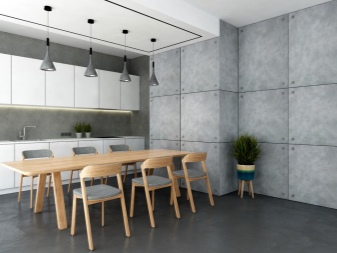
The modern market offers all of these materials in the form of wall panels. A similar finish can be represented by the following products:
- natural products (wood, plaster, metal);
- composite - a layer of natural material is applied to the base made of MDF or polymers (micro-concrete spraying, stone cut);
- Fiberboard, chipboard, MDF with lamination and imitation of textures;
- panels based on gypsum board with HPL lamination;
- PVC panels with printing or relief.

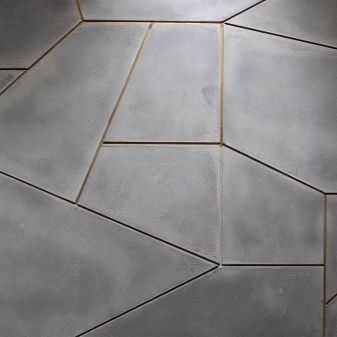
Sheathing made of natural materials looks authentic and expensive - for example, a gorgeous barn board panel. Panels hot rolled steel sheets or perforated metal will make the interior stylish and memorable. An original solution for interior decoration - concrete panels (sometimes gypsum with pigments acts as concrete). Russian and European manufacturers have launched the production of panels made of lightweight decorative concrete reinforced with fiberglass... You can choose from various formats, dimensions, shade, relief level (from smooth to very porous and even with a 3D pattern). This concrete can visually and tactilely imitate stone and wood. He is not afraid of changes in temperature and moisture.
Panels can be fastened in closed and open way using end caps that enhance the industrial character. Such fastening with bolts and rivets around the perimeter of the sheet is a striking decorative element and looks great on metal panels. PVC panels realistically reproduce any design: masonry of all colors, textured wood, cement, leather. They are easy to cut and easy to assemble. PVC can be washed and used in the kitchen and bathroom.
The assortment is represented by affordable domestic and more expensive panels from Belarus, Belgium, Spain.
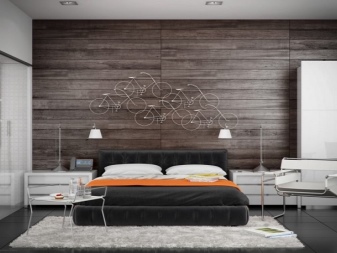
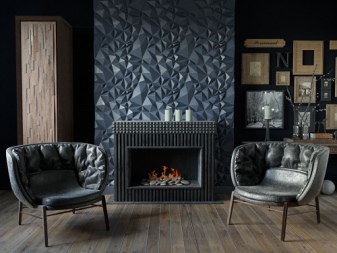
Panel release form:
- leafy;
- rack;
- cellular;
- tiled;
- with 3D effect.
Sheet material has impressive dimensions: height from 2.2 m and width from 1.25 m. On a flat wall, it is usually attached with glue, without lathing. Rack and pinion options usually have a tongue-and-groove connection. The length of the slats ranges from 2.4 to 3.6 m, the width is from 12.5 to 30 cm.
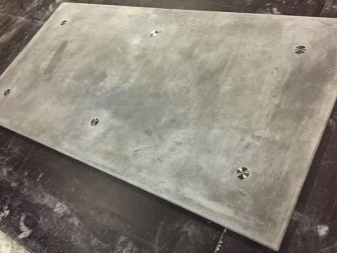
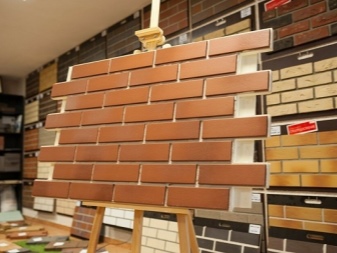
Selection Tips
- When choosing loft-style panels, it is important not to buy the same type of product, clogging all the walls with one texture. Play on combinations - for example, neutral masonry or plaster for concrete predominates, and the emphasis is on one plane, where metal and wood will play effectively.
- If there are too many finishes for aged wood, then the room will resemble a chalet, not a loft.
- For a small room, you should not take very active textures, it is better to use imitation of smooth, calm textures.
In a spacious room, you can use a bold and expressive technique - gypsum or wooden 3D panels.
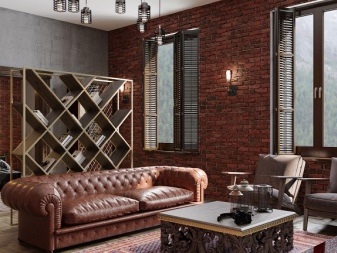
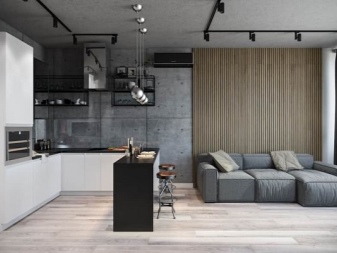
Beautiful examples in the interior
- The classic technique is panels for untreated brick.
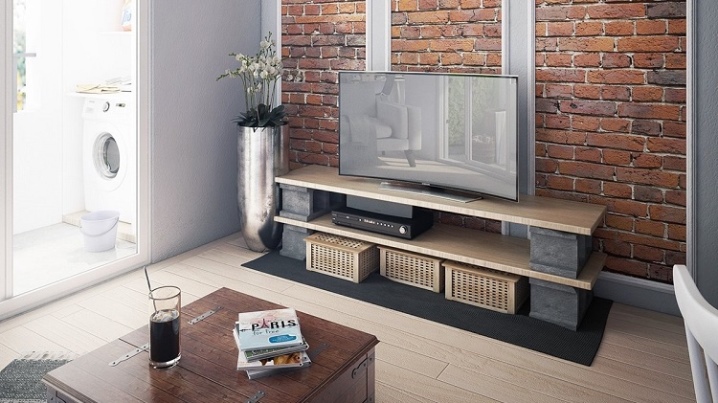
- We focus on black brickwork.
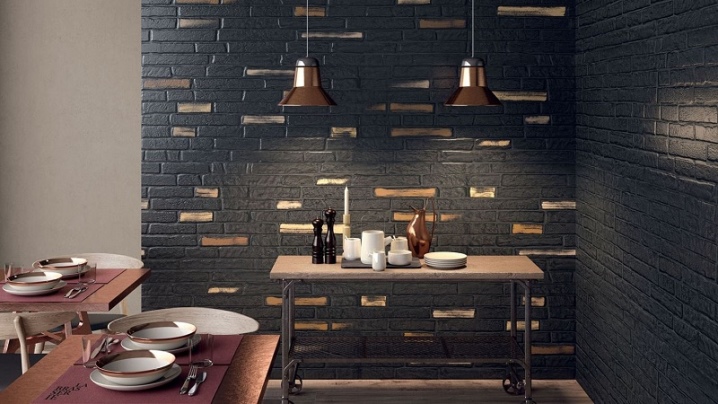
- Wood and brick complement each other perfectly.
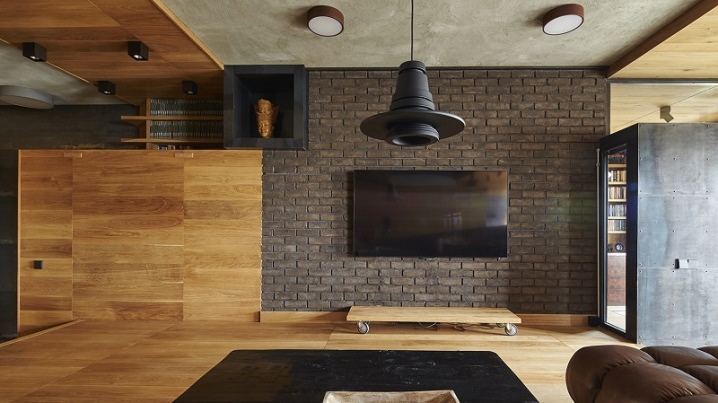
- Copper products are incredibly rich in texture.
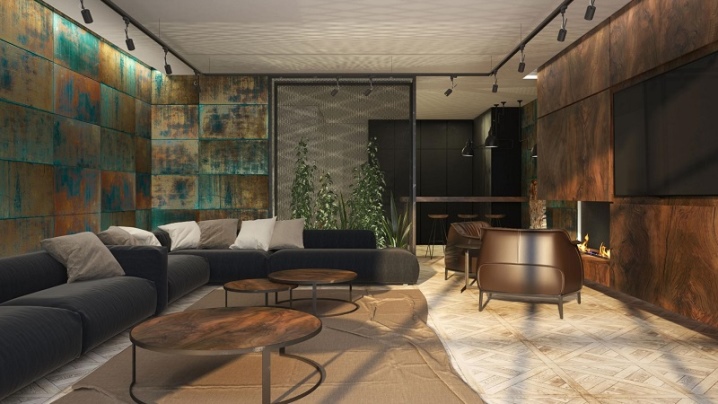
- A striking detail is rivets.
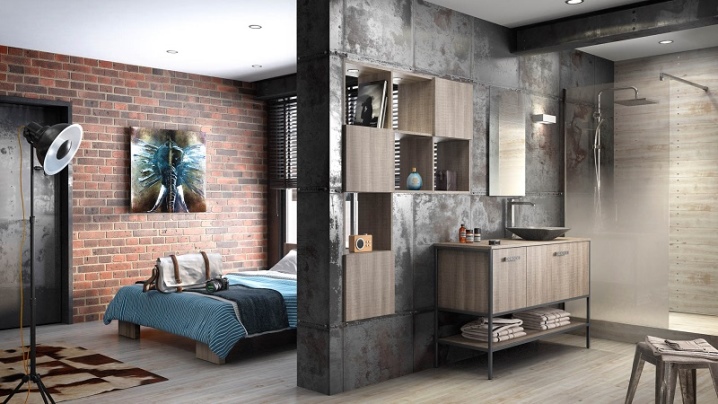
- Concrete panels can be very different.
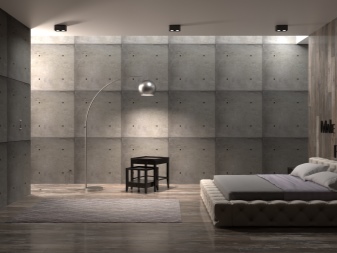
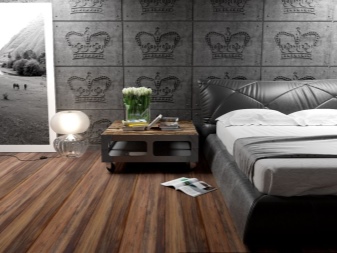
- Barn board finish.
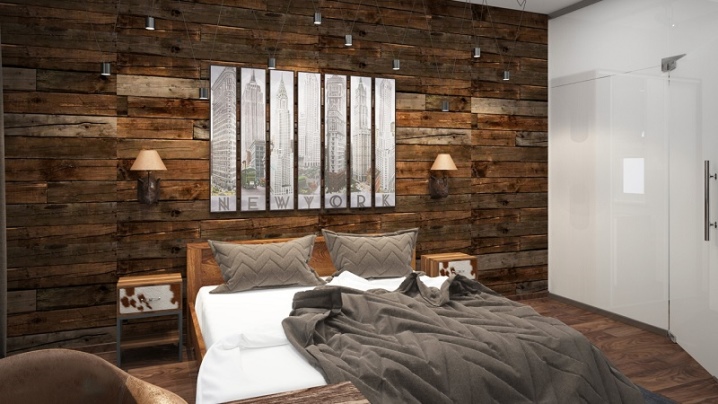
- The texture and warmth of natural wood is always in vogue.
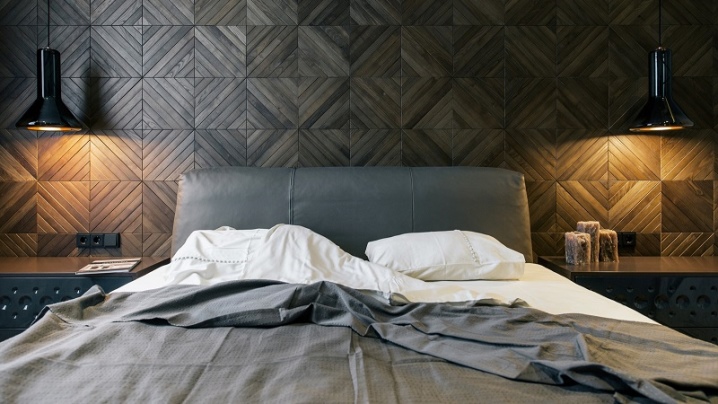
- 3D panels: made of wood and plaster for concrete ("Rock" and "Rhombus").
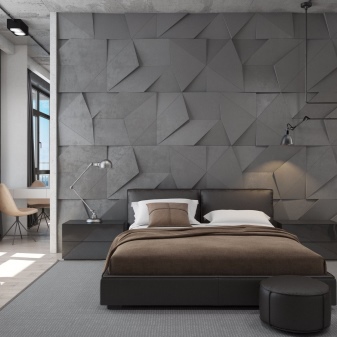
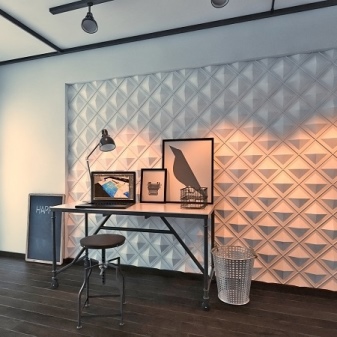
The following video demonstrates the process of installing decorative panels for concrete in a loft style.













The comment was sent successfully.